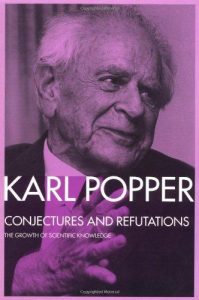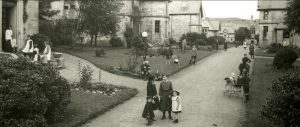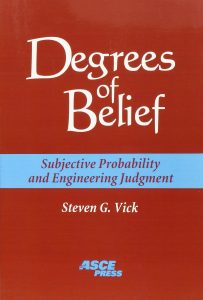6. A Personal Conceptual History in an Auto-Biographical Note
Curious readers might ask themselves who is the person behind this emerging account. It also seems philosophically consistent for me to explain why I am presently expounding particular views, since I place great emphasis on the wider intellectual context of ideas.
I also had a personal motivation in this article that emerges from my interest in family genealogy. I wished to write something about myself that none of my children could communicate to any grandchildren that might become philosophically curious young adults.
Childhood Influences
I was brought up in Kinning Park, a very poor area of Glasgow, Scotland as the oldest child of two deeply religious parents. Religion was a prominent badge of identity in the area where I lived, for it divided nominally Protestant and Catholic children and gave football supporters an automatic allegiance to a particular football team, either Glasgow Rangers or Glasgow Celtic. What people were said to have ‘believed’ was a badge of social identity.
For many, especially on the supposedly protestant side, this division had of course almost nothing to do with church attendance, as most people were irreligious. Nevertheless, defiance of anything and everything the Pope said was essential if you were a ‘Protestant’ boy. He was clearly one intellectual authority figure we could do without when it came to assessing truth. Naturally, I later came to see that popes, like any leaders in social hierarchies, can have some virtuous and sensible ideas arrived at through experience and contemplation.

Kinning Park, Glasgow
Source: The Mitchel Library, Glasgow
Like many children, by age four I had my first brush with scepticism. The chimney breast of the tenement properties was simply too narrow for Santa to descend with his presents so I did not believe in his existence any more. That was all the evidence I needed at the time.
From the same age, I also sat through very long sermons warning of all sorts of evils, including some of the idolatrous ways of the Catholic Church. Ignoring these theological intricacies was apparently a heinous deviation. All theological deviations from ‘The Truth’ were equally as likely to land you in hell as the crime of murder. Truth was supposedly available on a weekly basis if only I would listen. I was so indoctrinated and so limited in my social milieu that by the time I was nine or ten years old I used to judge how ‘brainy’ adults were by their ability to discuss theological matters. In retrospect, I was considering their ability to handle abstract ideas but not their talents in a more inclusive and more worthwhile fashion.
As a child in the mid-’60s, I was very deeply impressed by the account of the Romanian Richard Wurmbrand. He had at one time had been a Moscow educated Marxist and Comintern agent who was then subsequently tortured for his religious beliefs in prisons, of what was then a deeply repressive and vicious dictatorship.

Richard Wurmbrand
Source: http://www.cuvantul-ortodox.ro/recomandari/2015/11/23/richard-wumbrandt-convertire-ortodoxie/
I had discovered by first-hand account from the pulpit, the viciousness that can be associated with those who claim to have particular brands of political truth. It also seemed incredible that anyone, like Wurmbrand, could hold beliefs so strongly that they would maintain them in the face of torture.
The Effect of High School
In the first year at secondary school, I discovered science and my fondness for all things scientific. By my second year in school, aged 13, I had decided that, if science seemed to be at odds with the religious doctrine of my parents and their church, I would always choose the scientific explanation rather than the religious one. Much of Genesis, chapter 1 simply had to go, despite its almost unmatched poetry and beautifully grand lyricism. (Imagine starting a book with… ‘In the beginning’ and actually mean the very beginning of the entire universe … what poetry!). I kept these ideas to myself of course.
Ironically there are four things I learned in part from my parents and their evangelical church which have stuck with me into adulthood; these are 1) Belief matters, even although one might reject the idea of ‘The Truth’ in any absolute sense 2) there is value in thinking for oneself 3) there is a need for an informed mistrust of hierarchy and claims to authority and in a more political vein 4) a communitarian democracy can provide social solidarity.

The Symbolic 5K’s of Sikhism
Image Source: http://sikhguru.org.uk/sikhsim/sikh-identity/the-5-ks/
I had a school friend who was a Sikh. Being a curious kind of kid, I asked why he wore a turban and kara (bangle). He explained as best he could their symbolic significance and introduced me to the 5K’s of Sikhism. His answers amazed me because they seemed so alien, even superstitious to someone who had a modernised puritan upbringing. Perhaps the wearing of loose cotton underpants was good for the genitals? (An idea now supported in reproductive medicine). I realised however that he was perfectly sincere in his beliefs and was a fair kind of person who I assumed came from a poor but nevertheless respectable family. It seemed that his parents wished him to follow in their religious tradition and he was happy to go along with that. As a 13-year-old, I, therefore, decided it was extremely unlikely that he was going to burn in hell as one of the ungodly heathens and it would also be extremely unfair if that were indeed the case. It was illuminating to realise that people could be so utterly convinced of their beliefs and yet coexist with others who could be equally convinced by alternative views. I had in retrospect discovered the philosophical problem of religious diversity: ‘How can it be that so many people believe that their particular brand of religion, extant at a particular time in history, is ‘true’? I have subsequently read Loyal Rue’s description (1) of how in the U.S., religious students on the first semester of philosophy courses often have a similar, although rather belated, awakening.

Karl Popper, the first philosopher whose existence I knew about
Aged 15, my history teacher thought that I should expand my mind beyond the limits of high school science and read the work of Karl Popper. I, therefore, borrowed ‘Conjectures and Refutations’ from the library and found it incredibly difficult to understand from the point of view of a schoolboy interested in science. I did, however, grasp the notion that evidence and logic were involved in science, something that was absent from high school teaching at the time.
By aged 15 to 16, I was largely atheistic, although still intrigued by the idea that religious teaching might just provide motivation and some useful insights in the moral domain and be of some help to people in difficult circumstances. As a child, I had been taught about a local philanthropist, William Quarrier (2), a religiously-motivated person, who assisted destitute children in the squalor of 19th century Glasgow. Religion it seemed might have some upsides.

Quarrier’s Homes near Glasgow
Images Source: https://quarriers.org.uk/
The holding of firm beliefs could instil great determination and bravery, and inspire great kindness, but nevertheless also be used as an excuse for the most barbaric behaviour towards others.
Being an Undergraduate
I started university just after my 17th birthday as was typical in Scotland at the time. There I discovered the truly amazing ideas of modern biology, for it had not been possible for me to study biology in high school. It rapidly became obvious life is far more complex than anything that can be imagined in physics or chemistry. It struck me that evolution was such a wonderful idea, which explained so much of modern biology. Evolution was the intellectual glue that held together botany, zoology, biochemistry, genetics and molecular biology. A few years later I came across a wonderfully entitled essay ‘Nothing makes sense in biology except in the light of evolution’, which seemed to reinforce my view.

The University of Glasgow
Photo and processing by Steve
By my final year at university, I was deeply impressed that evolution did not describe the origin of life and so there was a tremendous black hole in our knowledge. I told an agriculturally educated Christian missionary that I would not waste my breath debating the merits of ‘evolution of the species’ with him. However, if he wanted to turn his fire on science, he should be aware that biology had almost nothing useful to say on the origins of life. Biology was then (and still is, even now) very incomplete at a fundamental level. The incompleteness of a particular area of inquiry, be it scientific or otherwise, has profound philosophical consequences for how we should read its truth claims.
I felt it was much safer intellectually in only subscribing to ideas where observation provided the demarcation between what should be thought useful, improbable, impossible or more centrally what should be thought of as being important. I had, without realising it, become an empirical pragmatist. By age 19, I became an overt atheist who sought to convince those of my contemporaries who were of a religious persuasion of the deep error of their ways. I argued that truth and insight could only be gained through science, although I have now recanted this philosophical heresy. Since then, I have also mellowed and diversified my views and so do not bear the antagonism towards religion that many fellow atheists exhibit. I am now interested in religion as a social entity and why it survives in the presence of ideas, which appear to have much greater explanatory power.

I was in awe when looking up to see this scene in Salzburg Cathedral, Austria
Photo composite by Steve
Everywhere I visit in Europe, I seek out the fabulous art exhibited in galleries and churches and never cease to be amazed by the efforts that people will go to in furtherance of their religious beliefs and the development of the associated social structures. I am left however with a very deep suspicion of some forms of metaphysical discussion that seeks to plug gaps in our thinking with unwarranted and unproductive speculation.
Being a Post-Graduate
As a postgraduate student in Edinburgh, I encountered two scientists with an interest in the philosophy of science. One was a remarkable marijuana smoking one-eyed Buddhist who for lunchtime relaxation would read musical scores. He and his colleague, my Ph.D. supervisor, introduced me to the idea of patterns in nature and the notion that there could be mechanistic explanations, which can operate at a more abstract or theoretical level than most biologists currently practice.
I must be one of the few postgraduate biology students who sat at an electron microscope with the views of Karl Popper in mind. I deliberately went out to falsify ideas that I had concerning embryonic pigmented cells, but rapidly discovered that this is not a fruitful way to proceed in science.
The Buddhist also introduced me to the idea of the ‘paradigm shift’ that had been introduced 17 years earlier into the philosophy of science by Thomas Kuhn. I accepted the idea in a shamelessly unquestioning fashion, although I have now rejected the notion in favour of a more evolutionary outlook. By the time I left Edinburgh in 1982, I was strongly convinced about the consilience of knowledge (4), however, I did not encounter that piece of vocabulary until much more recently. I tried to explain this to a girlfriend of the time who clearly thought I was seriously strange for entertaining such notions. I have since drifted away from that position and am more taken with the idea of knowledge at different and perhaps even irreconcilable levels of explanation.
Post-Doctoral Research
Later as a post-doctoral fellow, I worked within a research group that studied the biology of chlamydial infection. I was amazed to learn that the accuracy (or predictive value) of diagnostic tests for this and other diseases are not absolutely definable but related to the prevalence of disease within the community in which the tested person lives. So we have a chicken and egg situation. Until you do the test you do not have an idea of the prevalence. However, until you know the prevalences you can not know the accuracy of your test. Nevertheless, you need an understanding of how accurate the test is to understand the error rate in the testing and so, at the limits, understand the precision of your prevalence estimate. Moreover, the conclusion could be reached by very simple arithmetic related to the laws of probability.
In addition our (numerical) understanding of the predictive value of the test results is also conditioned by whether or not the patient has presented with symptoms (or reported behaviours) that are also associated with an increased probability of having the infection. The laboratory test result should not be considered in isolation of other relevant information, where that is available.
This was a major discovery for me in a personal philosophical sense. It was my introduction to what I now realise is called the Bayesian epistemological outlook. It taught me that when we have the good sense to admit that we have more that one strand of evidence, the possibility of generating errors and so can only produce probabilistic estimates there are profound consequences for our thinking and practice. Science no longer seemed on such a sure philosophical footing.
Medical Testing provides a very useful way of approaching Bayes Theorem
Throughout my time as a post-doc and later as a lecturer in the medical faculty of the University of Glasgow I came to realise that applied clinical research was a separate discipline from the rest of biomedicine. I developed a very strong admiration for those who had the personal discipline to complete such arduous studies and was equally impressed by those who possessed skills in probability theory that were required to carry out proper statistical analysis of clinical research data. Philosophically this had helped to convince me to think that there are different levels of analysis at which we can operate in an epistemic sense. My favourite way of thinking about ‘levels of analysis’ is to remind myself that quantum mechanics has nothing descriptively useful to say about the behaviour of my neighbour’s cat.
Being Depressed and Degrees of Belief
More than 15 years ago I suffered a deep and prolonged depression, for which I had been hospitalised. Cognitive behaviour therapy was part of the therapeutic help that I was later given. I was asked by the clinical psychologist to produce numerical estimations of my degree of belief concerning depressive thoughts that I might have (5). I explained that I couldn’t possibly do so because I had no data derived from measurement. She exasperatedly said, “you scientists are always the same”. I had been introduced to the notion of subjective probability of belief. Here, to my naïve amazement was a form of philosophical analysis in everyday use. I was deeply suspicious about the precision of this concept, although instantly fascinated by the general notion. My interest in what it meant to believe an idea had been rekindled through the idea of subjective probability.

I had never expected to read an engineering textbook for philosophical insight!
Later I came to wonder what the connection was between Bayesian subjectivity, epistemic ‘Degrees of Belief’ and the more rigorous but nevertheless error-prone practice of diagnostic testing in the hospital laboratory or in geotechnical engineering (6).
Life After Academia
For the sake of my mental health, I left science, for which I was in any case 100 years too late in my interests, and became a professional photographer. This was not particularly profound change for me in one practical sense, as I had already spent much of my life taking photographs. At work, I used microscopes of various kinds and captured an enormous number of images and tend to see the world in pictures. Hence the presence of illustrations in this account.
Discovering Philosophy
After leaving science I attended public lectures including those in the Glasgow Science Festival. A professor of zoology gave an interesting account of people who reject the idea of biological evolution (references here, and here). He answered a question from the audience by saying “Science is not a matter of belief”. Being an impressionable kind of person, I went home and that same evening wrote a ‘Manifesto for Non-Belief’, on the back of a large brown envelope, although I later disowned the idea. This further increased my interest in the subject of belief. I simply had to know and understand more about belief. At times, over a period of 2 to 3 years, I would sit for periods in the studio, head in hands looking down at my desk. I considered the nature of belief in the context of what I had learned from religion, science and the medicine that I had encountered in both a personal and academic context. From there I felt forced to consider the concepts of knowledge and truth. I had unwittingly stumbled into the field of epistemology.
By relentless and obsessive thinking I rediscovered for myself some important concepts in epistemology. This included deflationism about truth, which came to me by contemplating the meaning and use of the word ‘is’ for days on end. After much pondering, I began an intensive period of online reading that included pages from the Stanford Encyclopedia of Philosophy and the Internet Encyclopedia of Philosophy. After a couple of years, I came to realise that reading good books with well-developed explanations, taken in a series from beginner to postgraduate level is a much better way to proceed. It now strikes me that the best-understood philosophers are usually dead, as time gives the opportunity for others to reflect, comment on and coherently assimilate their ideas. Philosophers I particularly admire but do not uniformly agree with are John Dewey, Willard Van Orman Quine, Hilary Putnam, Richard Rorty, Nicolas Rescher, and Bas Van Fraassen. More recently Susan Haack’s conception of Foundherentism has developed some appeal for me. John D. Norton’s recent attempts to squash once and for all the ridiculous and tediously repeated notion of the so called ‘Problem of Induction‘ is very welcome in my opinion. As I think about philosophy entirely on my own, I missed out until a few weeks ago on Andy Clarke’s publications on the subject of the predictive brain and the associated concept of generative intelligence. I have the predictive algorithm of YouTube to thank for drawing my attention to his contributions to current thinking, which I see as being completely in line with my pragmatist outlook.
I feel Richard Rorty could have been a truly great philosopher had he had a scientific education and outlook. It was he who finally persuaded me that it does not make sense to claim that there can be a pragmatic theory of truth.
In 2020 I discovered the existence of the influential thinker Susan Haack, who like me dislikes the idea of alternative ‘camps’, or as she says “cliques”, within philosophy. Due to my lack of formal philosophical education, I now realise that positions it has taken me years to arrive at were already published by her in the 1970’s. Although there is something positive to be said for the DIY approach of the autodidact, it can be a painfully slow way to make progress.
I hope I now have a more insightful and deeper way of thinking about the subject than I did when I started many years ago, although I realise that I am not presently wise enough to make personal progress in the fields of formal logic and morality. Formal logic requires a form of intelligence and persistence, in which I am deficient. The development of ethical insight needs a certain kind of wisdom about the world that I am too gullible to acquire.
The act of writing in itself has been one of discovery. As I learn more I rewrite and expand rather than fulfil my wider ambitions to write more about the philosophy of science, and relativism. When there appears to be so much to learn and so much to think about there never seems a good time to begin producing a text. Consider the predicament of Charles Darwin when he started the mere ‘extract’ of his ideas that were to become his revolutionary book ‘On the Origin of Species’ (now available free online).
So where has this philosophical journey led me?
I temporarily abandoned writing this website after writing a very quick overview about explanatory theories of truth. Like Richard Rorty, I had become disillusioned with standard epistemology. It no longer seemed worth writing a collection essays about different explanatory theories of truth, so I stopped writing (and rewriting!) for a long period.
In 2008 I was impressed by the attempts at rationalism of a prominent Scottish theologian David Fergusson in his Gifford lectures at the University of Glasgow (now published in modified form as Faith and Its Critics: A Conversation. His emphasis that theological ‘first cause’ arguments and modern cosmology of the metaphysically hypothetical multiverse, both in their own ways lead us to fundamental uncertainties struck me as profound. Philosophical contemplation around that period led me to briefly become a member of the Humanist Society of Scotland since I endorse the international humanist manifesto. I became disenchanted that, at least locally in Scotland, modern humanism has a tendency to define itself as being non-religious and campaign on that basis rather than espouse a positive and life-affirming philosophy.
At a more conceptual level, I became convinced that a pragmatic approach was more satisfying after sitting through philosophical abstractions with Italian professor of Theoretical Philosophy, Gianni Vattimo in the Gifford Lectures of 2010. At one point he used the term pragmatic relativism and my mouth fell open, since I had already come to the conclusion that this description best fitted my personal approach to epistemology at the time.
As some of the modern philosophy which I was reading at the time was preoccupied with language my mind turned towards the importance of symbolism both in formal systems of analysis and in the way we conduct our lives. I then eventually realised that the symbolism of modern logic has its equivalent in natural language and furthermore that other symbolic forms can have these equivalents. There seemed to be an enormous and puzzling dearth of writing on Symbolism in philosophy. Due to my lack of formal education in Philosophy, I had rediscovered the need for what is now called Semiotics in which the words sign and signifier are used instead of symbol.
In this uneducated state, instead of delving into the field of semiotics, I visited a Hindu Temple to examine the symbolism of that belief system. (The great irony of that, is that Charles Sanders Peirce, an originator of a form of semiotics was a pragmatist.) I asked the priest, a former academic engineer, to explain to me why animals featured so strongly in the iconography. He explained that as the Aryans migrated into India they might have assimilated the older beliefs of the indigenous people which were probably very much connected with the animals that they encountered. He then said something quite telling. ‘In the west there is a strong tendency, particularly in religion, to sweep away what has gone before rather than assimilate. Hinduism assimilates.’ Applied to Western Philosophy, his idea becomes quite powerful and so has had a profound effect on my philosophical outlook.
Since classical Greek times philosophical ideas have been accumulating in Europe, China and the Indian Subcontinent. As we look back on that rich legacy, we will naturally tend to favour particular ideas rather than assimilate and synthesise, since the latter activity is more difficult. Indeed it is notable that the philosophical information website, Philpapers.org, when conducting a very informative survey gave respondents the opportunity to express preferences regarding different theories of truth. I presume these preferences were to be regarded as in competition for the thinkers’ respect. It would seem that when an idea comes to the fore, such as deflationary theories of truth, for some inexplicable reason other ideas, coherence, for example, is then to be ignored. Paul Horwich amusingly says of his own championing of the ‘minimalist’ brand of deflationary theory ‘as someone with a dog in the race, I can’t deny that I think it matters which particular deflationary account of truth is the right one’ (6). Although I strongly encourage others to listen to the barking of Professor Horwich’s dog, I now feel that listening to the other philosophical animals in the menagerie is of equal importance.
I was initially put off a Deweyian form of pragmatism which stresses warranted assertibility. Initially in my isolation, I viewed ‘warrant’ as merely a substitute for truth and assertibility as an irrelevance. I had not yet worked out that we can simply substitute John Dewey’s concept for ‘acceptance’. When I eventually reached the conclusion that the natural sciences only looks for adequacy of explanation, a friend pointed out that was pragmatism. A light bulb turned on in my head and renewed my interest.
I see myself presently as a pragmatic empiricist who views philosophy as being continuous with systematic studies of all kinds, including the natural sciences. So, I am a metaphysical materialist with no interest in transcendence, mysticism, fairies, or anything else with a supernatural description. I think it desirable that analytical ideas at least give the illusion of possessing explanatory power. This I find it preferable to being concerned about claims of absolute truth.
I subscribe to a ‘weak’ form of the sociology of scientific knowledge or SSK, since I am an epistemic contextualist. For me, scientific explanations are to be viewed as coherent and predictively useful narratives. Of course, science also involves imaginative creativity and speculation. At the frontiers of foundational physics for example, speculative metaphysics is often mathematically expressed in a way gives a disguised respectability rather than epistemological substantiveness. I now view mathematics as a form of human expression and not the physicality of nature.
I am neither an idealist nor a realist about truth. If I were forced to choose only one form of explanation of truth I would very grudgingly be a deflationist. In practice, I see virtue in the pragmatic stance towards fallible human belief, some elements of the coherence theory of justification, and aspects of foundationalism (based on our axiomatic assumptions). Metaphysical correspondence theory also seems attractive to me, since to think otherwise would be to fall into a sceptical pit of nihilism. In addition, we need to reject the naivety of the Vienna Circle of logical positivists and bear in mind that we always require some form of metaphysics, which at times might be best expressed mathematically.
For me, the most that we can hope for concerning our explanations of the world is that they are rooted in observation, are coherent, are at least weakly predictive, and are not personally or communally-held delusions.
Although I have given scant thought to ethics or the morality of action, I see no need to equate the epistemic notions of ‘truth and falsity’ with ‘right and wrong’, despite the great social importance of the later. There can, of course, be a moral and political logic (or inference) based on declared moral axioms especially, if we accept, for example the idea of John Rawls that we should reason through a “veil of ignorance“.
Finally …
One Friday night in November 2019 and 15 years later, I gave my first public talk with a philosophical component. When the chairperson asked what he could tell the audience about me, by way of introduction. I ‘came out’ as “….. also an amateur philosopher”. That claim is no more significant to me than claiming that I am also an enthusiastic amateur photographer. However I am pleased to say that since writing the first version of this piece much more importantly I have become a grandfather to two lovely little boys who might eventually read what I have written.
Book References
1) Religion is not about god: how spiritual traditions nurture our biological nature and what to expect when they fail, by Loyal Rue (2006) ISBN-13: 978-0813539553
2) The Quarrier’s Story: A History of Quarriers by A. Magnussun (2006) ISBN-13: 978-1841584942
3) Consilience: the Unity of Knowledge by E.O. Wilson (1999) ISBN-13: 978-0349111124
4) Mind Over Mood by D. Greenberger, D CA Padesky CA ISBN-13: 978-0898621280
5) Degrees of Belief: Subjective Probability and Engineering Judgement by SG Vick. (2002) ISBN-13: 978-0784405987
6) Horwich, P. (2010) Truth-Meaning-Reality ISBN-13: 978-0199268917
My Video Playlists
Putnam Speaking and Rorty Speaking
Steve Campbell
2016-2024
As the Irish comedian Dave Allen used to say at the end of his TV shows which were packed with irreverently hilarious jokes and sketches about religion, “Goodnight, thank you, and may your God go with you”.
THE END